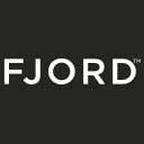Fjord Trends look back: 2018
Fifteen years of making business and design predictions, but how do our thoughts through the years seem to us now?
Fjord Trends 2022 will be our fifteenth report into what’s coming up for the business and design industries. To celebrate this milestone, we’ve asked some of our leadership team to pick out one trend from each of the past 15 years, to share their own thoughts and to ponder how things have panned out since. This is part eleven.
This episode our Fjord Trends 2022 countdown is all about 2018 and it’s written by Stéphanie Lafontaine, Design Experience Lead France, Belux, Netherlands — Accenture Interactive.
As with everything, context is king, so let’s set the scene for the year leading up to launch, with some cultural references that might take you right back. It was the beginning of the #MeToo movement, in which women pushed for justice and to have their voices heard, just as “The Handmaid’s Tale” debuted on television. And Warren Beatty and Faye Dunaway accidentally handed the best picture Oscar to “La la Land” instead of “Moonlight”.
Over to Stéphanie …
My favorite trend: Ethics economy
By Stéphanie Lafontaine
What we said back then…
Organizations have started to take political stances on issues of general concern and, over the coming year, this will grow more commonplace — driven by customers’ and employees’ accelerating expectations. No organization will be able to afford to sit back and claim to be neutral. Navigating this new territory successfully starts with preparing to have every action (and inaction) closely scrutinized and used as a differentiator for customers choosing between two otherwise comparable options.
In 2018, the trends were borne out of a fundamental tension. Whether it was a shift, a disagreement, a collision, or a definitive rift in ideas. Digital versus physical, human versus machine, centralized versus decentralized, speed versus craft, automation versus control, traceability versus anonymity.
Ethics economy is, for me, a transformational trend. We couldn’t imagine in 2018 how the world would be impacted by a pandemic, and we had no way to envision the ways in which this trend would be accelerated by Covid-19.
The crisis has driven people to change their consumption behaviors, favoring purchases that are more responsible, from brands that meet their high expectations and align with their values. Health, local solidarity, transparency, product traceability, reduction of ecological impacts are essential subjects that brands must publicly prioritize. Companies that don’t subscribe to this impact- or mission-driven approach take the very real risk of losing customers’ trust.
When designing new products and services, meeting the challenges and opportunities presented by the ethics economy means taking a systemic approach, linking utility and impact. We need to create value in a responsible and sustainable way by giving meaning — not only for the company and the customer, but also for the planet.
Today, even more than in 2018, we need to define the value of the experiences developed. To succeed in a sustainable innovation strategy, we must generate innovations that have a positive impact on people and on the environment. And we must consider getting back to basics.
Fjord Trends 2022 is coming soon. Be among the first to know when it goes live. Sign up here to be notified.
